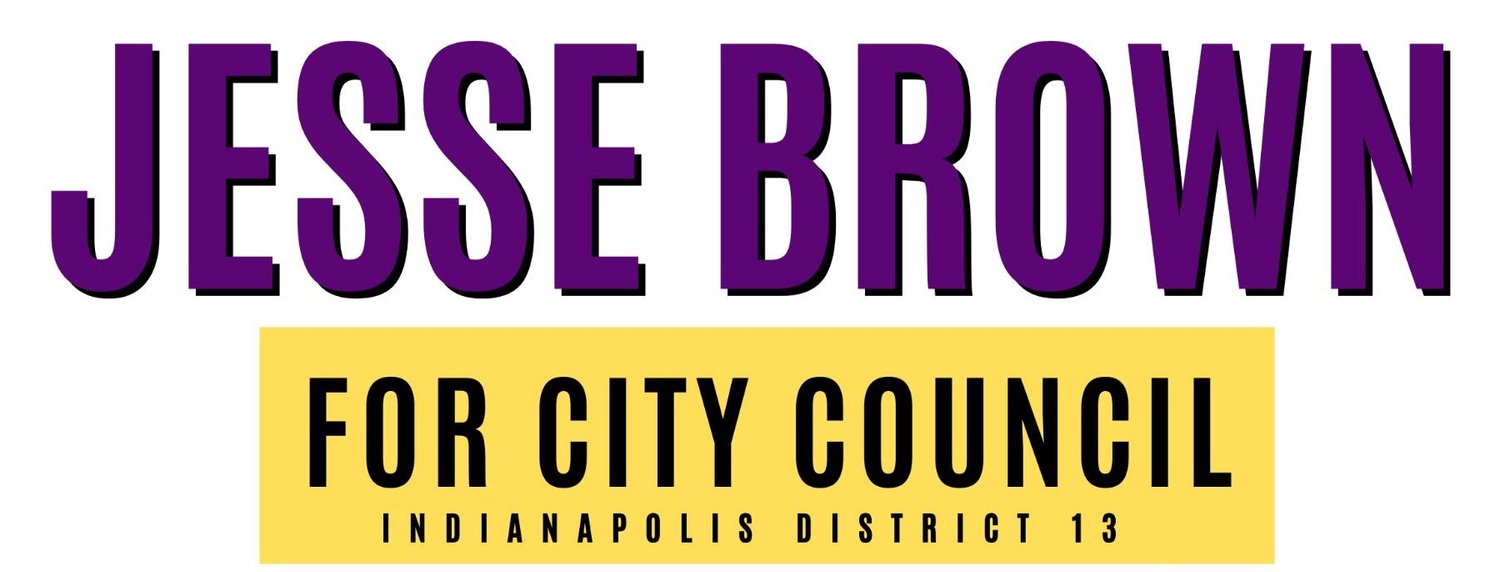The Mayor’s Inaction, Centered
Friends,
Today, I want to write to you about a topic that is a forbidden subject in Indianapolis politics: good organizational governance and leadership.
I’m a bit of a fanatic on this topic. At Angie’s List, my peers and direct reports alike laughed at how I would read books on leadership and customer service on my lunch break. I’ve probably read more than fifty at this point.
Over and over and over again, the literature about best practices tells the same story. One of the most important lessons for any organization is to uplift, encourage, reward, and most of all address feedback and requests from customers and stakeholders. This involves listening carefully when people provide feedback, showing them that you understand the issue, resolving the issue, and then communicating what you learned and how the problem was fixed.
Government should be the collective and consensual arm of the people. We should pool our resources and authorize people to work on our behalf - ideally around shared goals and a shared vision.
Voters should be able to hold the government accountable to proposing a vision and to properly executing on that vision. Transparency laws should ensure that financial mismanagement and poor performance are not hidden from the public. Constituents should have an easy time requesting assistance, providing actionable feedback, and using government services to help themselves and their community.
Constituents expressing their desires and their needs should be one of the top drivers of government action, and constituents should be empowered to be part of the solution wherever possible.
Sadly, in Indianapolis in 2024, we are worlds away from this standard.
Case in point: the Mayor’s Action Center
In its ideal form, the Mayor’s Action Center serves as the front door to the city. Constituents can call one single phone line with any number of questions, service requests, complaints, or feedback. Constituents can also use the modern, functional RequestIndy app to report problems in their neighborhood ranging from tall weeds to potholes to abandoned cars. The friendly customer service agents working at the MAC can answer many questions themselves and know who to ask for more unusual or unique problems. By calling the MAC,
constituents can learn about city policies and share their feedback on ways the city can improve. The MAC agents can get that feedback to the right department, so the department can benefit - from understanding gaps in constituent information or education, from hearing about significant issues in different areas of the City, and from hearing what policies and behaviors are causing significant constituent pain and frustration.
Contrary to this, dozens of my constituents have contacted me complaining about submissions to the Mayor’s Action Center or RequestIndy app simply being closed without comment. When constituents complained about this to me, I immediately assumed correctly that this was a technical glitch that I’ve personally, having worked in tech positions previously, easily fixed many times before.
For one common example, if you report an abandoned vehicle on the RequestIndy app, you will likely see your case as “Closed” without much more info available on the app. That means anyone who took the time to helpfully let the city know about this problem is left feeling like their feedback and requests are being ignored. These constituents will likely think twice before submitting a future request and will likely tell their friends and neighbors how horrible the city’s customer service is.
On the back end, MAC agents may be able to see the substatus of the case is something like “Referred to Business and Neighborhood Services for action. Expected outcome is an inspection and fine or tow within 72 hours.” Residents have to take the time to call to get that information, if it is available, which it often isn’t, even to MAC agents, because of issues in other agencies, either in tech or in staffing.
All this leads to deservedly frustrated residents calling and taking their frustrations out on MAC agents. These agents deserve all the support they can get, yet they don’t even earn a living wage - not even agents with decades of experience.
In 2018, the Hogsett administration created the Good Wages Initiative which requires Marion County businesses to meet a minimum wage of $18 per hour in order to be certified by the City, yet several of the City’s own agencies, including the Mayor's Action Center, don’t meet that requirement six years later.
In addition, the budget for the entire Mayor’s Action Center - team, tech, and all resources - is only $1.4 million out of a $1.6 billion city budget. That means that the administration thinks that the frontline workers helping educate, guide, and solve constituents’ problems deserve less than one tenth of one percent of the budget. I have personally interacted with MAC agents numerous times. I know how hard they work, how knowledgeable they are, and how much they care. Considering their role in government, they deserve more.
It’s up to the City to prove that they care, about their constituents and their employees. They can do so by immediately directing resources to stop impoverishing their frontline workers and by pushing departments to support the MAC. Doing so would benefit the City administration as a whole and all Marion County constituents.
What have your experiences with the Mayor's Action Center been like? Do you think the workers you've spoken with deserve to be paid a living wage?
In love and solidarity,
Jesse
